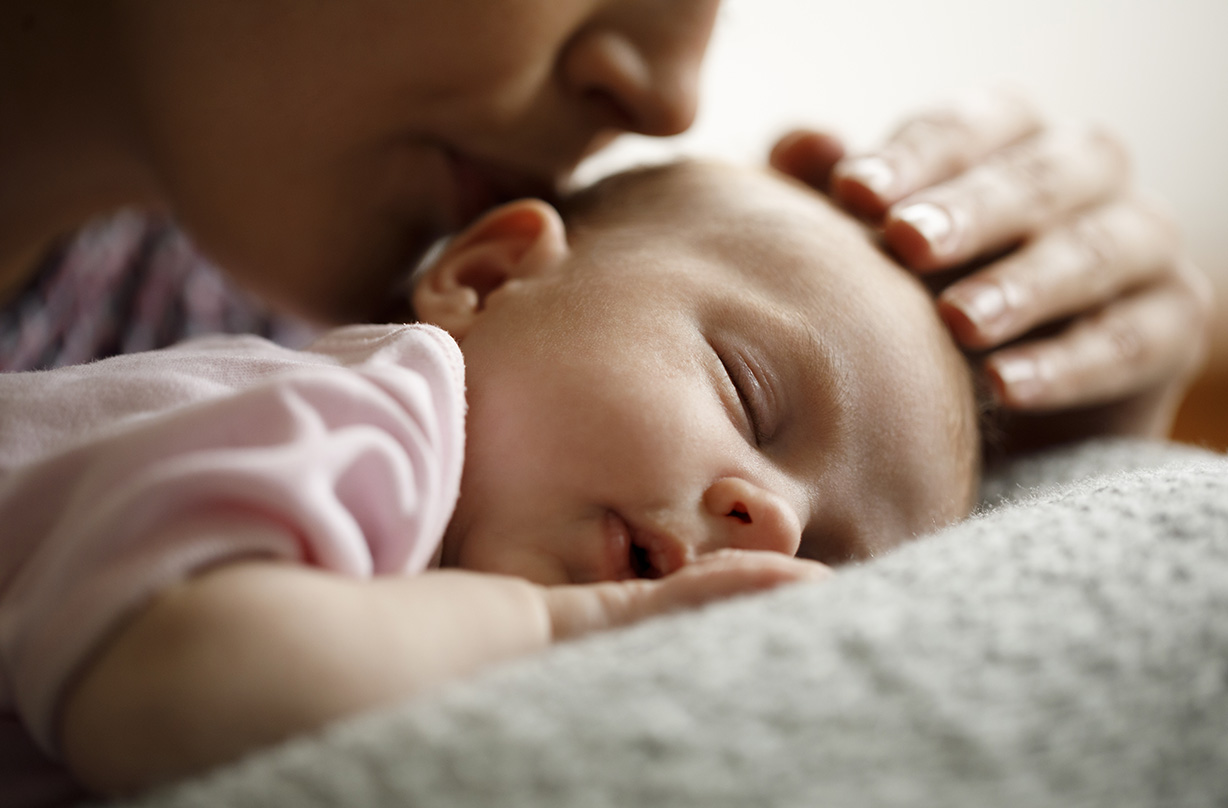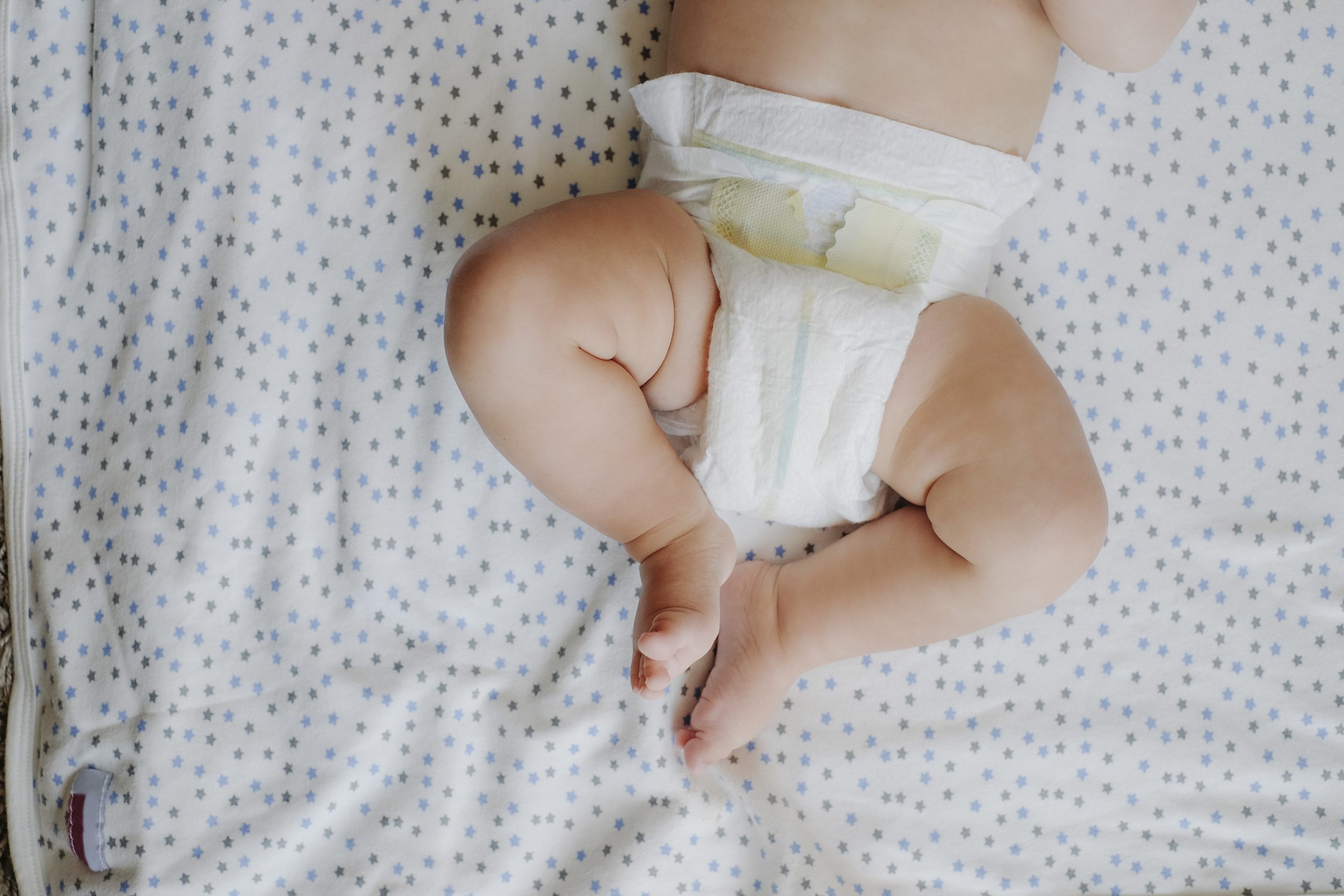'My baby won't sleep!' Your baby sleep problems solved
Pampers baby sleep expert Wendy Dean shares her insider tips on how to get your baby to sleep


One of the hardest things about having a baby is the host of sleep problems that come along with your newborn.
Baby sleep problems are a common and exhausting dilemma faced by lots of new mums, made all the more frustrating ironically by the lack of sleep you're getting yourself.
After overcoming their first night and going through something that has come to be known as second night syndrome, baby sleep problems can begin to develop on a long-term basis.
In a bid to answer the most frequently asked baby sleep questions, we spoke to Pampers sleep expert Wendy Dean and Kiddies' Kingdom parenting expert, Jumaimah Hussain, to give us some baby sleep advice and share her tips on how to get your baby to sleep.
From dealing with babies who need to be fed throughout the night, rocked to sleep, or who can only sleep sitting up, to whether or not to use a dummy, they've given us some great ideas and insight.
Because at the end of the day, you can have the best cot on the market and all of the baby mobiles and sleep aids in the world, but there could be a more serious problem as to why your baby isn't sleeping.
Your baby sleep problems solved
My baby won't sleep in a cot
Every time I put them in the cot they wake up and start crying again. How can I get them to sleep in their cot?
Parenting advice, hot topics, best buys and family finance tips delivered straight to your inbox.
Pampers sleep expert, Wendy Dean says, "Each time your little one wakes and starts to cry, pick them up and soothe until they are quiet. Put them back in their cot again before they falls asleep in your arms.
"Keep repeating until they eventually fall asleep lying down on the mattress.
"It will be hard work and could take up to 3 hours on the first night, but with perseverance they will start to sleep on the mattress for a good length of time."
It's also good to note that a good-sized moses basket, kept in the same room as you sleep in, is the best way to make sure your baby is sleeping safe and sound.
My baby is waking early

My baby wakes really early in the morning, but how can I get them to sleep longer/later?
"Check that your baby really is waking too early. The 'normal' range for a baby to wake up is between 6am and 8am." Wendy advises, "Getting up at 6am may be a bit early for many of us, but you may have to live with it for a bit until your baby gets older.
"If your baby is waking before 6am, try and leave them in the cot to as close to 6am as you can. This is particularly important if they're not crying as they may well surprise you and go back to sleep.
"If your baby is crying, then go in and soothe, but keep the lights off and the mood quiet until 6am and if your baby is on solid food, try not to feed milk until after 6am."
I rock my baby to sleep but want to stop
My baby likes to be rocked to sleep, but how can I break this habit without upsetting them too much?
"Rock your baby as normal, but put them down before they actually fall asleep. If they cry when they go on the mattress, pick them up and rock again." Wendy says, "It will take some time, but eventually your baby will start to fall asleep on the mattress instead of in your arms. You can then start to reduce the length of the rocking sessions."
My baby won't nap during the day

Or when they do it's only for 20 minutes. Most of my friends' babies sleep three hours a day!
Some babies need less daytime sleep than others, Wendy tells GoodtoKnow. "So if your baby is happy and content throughout the day, then I wouldn't worry about it.
"However, if your little one is cranky and obviously over-tired then they may have an issue with settling off to sleep.
"A good way to check is to look at bedtime. Do they go down awake with no crying and fall asleep on their own with you out of the room?
"If not, then work on that and the naps should happen a lot easier."
My baby won't sleep at night
They keep nodding off during the day, but won't sleep properly at night. How can I swap them around?
This is usually a problem for newborns who have not worked out the difference between night and day, Wendy says.
"Wake them every 3-4 hours to feed through the day (but not at night). Make sure that the room is light when they sleep during the day and dark at night. Take them out for plenty of fresh air through the day and attend activities in the local area.
"These actions combined should mean that they are awake more during the day and then will sleep better at night."
My baby is sleeping with a dummy

They love it, but how can I get them to sleep without it?
"Dummies can be useful up to around 4 months, but after that the disadvantages outweigh the advantages." Wendy warns, "If a baby falls asleep with the dummy in, then when they wake through the night (which all babies do as part of their natural sleep cycle) they look for it again and can't get back to sleep without it.
"There is also good scientific evidence that babies who use dummies experience more coughs, colds, chest infections, ear infections and stomach upsets than babies who don't.
"The best way to get rid of a dummy is to just ditch it. Most babies have forgotten about it in around 3 days."
I sometimes feed my baby back to sleep
Is that a bad thing?
"Obviously very young babies need to feed through the night.
"However, if each time they fall asleep they do it on the breast or bottle, they lose the ability to fall asleep without milk which has implications when they get older and no longer need a night feed.
"If possible try and rouse your baby before you put them in bed, so that they then have to re-settle themselves to sleep."
My baby's nappy needs changing in the night

My baby's nappy leaks at night because it gets so full. I don't want to change them in the night because it wakes them up. Is there any other solution?
"If mums use a good quality nappy, like Pampers Baby Dry, it should not be necessary to change the nappy all night because of the advanced liquid-holding technology built into the nappy. If it does leak, it may be that mum is not using the right size.
"Babies come in all shapes and sizes which is why there is an overlap in the weight ranges on the Pampers products. If you are using a size 3, but your baby is also in the weight range for a size 4, consider trying that size."
I'm worried about my baby rolling over in their sleep
My baby rolls onto their front, gets stuck and screams until I go in as they doesn't know how to roll back yet. What can I do?
Wendy says, "This is a frustrating time and most babies and parents go through it. Each time your baby gets stuck, swiftly turn them over without making too much contact and then leave the room again or go back to bed if they're still in with you. Repeat as many times as necessary until they go back to sleep.
"Through the day include lots of tummy time so that they can practice rolling back the other way.
"It is a phase and as long as you don't introduce any 'props' such as feeding each time they get stuck or popping a dummy in, it will pass."
Also to keep them safe, be sure that their cot meets the safety standards issued in the UK.
Are cot bumpers safe?
My baby gets its legs stuck in the cot, but I don't want to get a bumper because I'm worried about their safety. What can I do?
Wendy advises, "Each time your baby gets stuck, move them back to a comfortable position, quietly and in the dark.
"When they get older this will no longer be a problem because they will be able to adjust and fall back to sleep on their own. It could take a few weeks.
"If your baby also bangs his/her head when stuck and you're worried, there are now several products on the market which wrap each individual cot bar and so prevent any suffocation risk. This sort of bumper also can't be used as a leg-up to climb out of the cot!"
My baby is fighting sleep

In the middle of the bedtime routine, I know my baby should be getting drowsy. But instead they are crying, trying to move around as much as possible and fighting sleep.
Depending on the cause for fighting sleep, parents should move their baby’s bedtime to adjust their routine slightly, Jumaimah Hussain, parenting expert at Kiddies Kingdom says. "If you suspect they are overtired, put them down earlier, encouraging them to feel relaxed and drowsy with a bedtime story or lullaby.
"However if they do not seem sleepy in the evening, then try moving bedtime later or extending their wind-down routine. Likewise, introduce naps accordingly; for example, if they have been used to taking two naps a day then try dropping this down to one to help tire them out.
"For separation anxiety, find a balance between providing comfort and reassurance but also giving the baby space. Holding back during periods of unrest will teach them to self-soothe and in turn reduce the need for parental attention."
But the idea of babies fighting sleep is by no means a rare issue, as our parenting expert explains.
Why do babies have difficulty sleeping?
There can be many reasons why a baby might refuse or fight sleep but the most common, according to Jumaimah, is because they are overtired.
"Just like adults, if a baby doesn’t get the required sleep, it becomes delirious and becomes too tired to fall asleep. Babies and young children have a specific ‘sleep window’ where they naturally become drowsy and if they miss this window or a nap interferes with their routine, they will struggle to fall asleep."
However, "on the flip side, a baby may fight sleep if they have had sufficient naps and simply aren’t tired. Getting this balance right can be hard for parents as it requires a strict routine and a lot of persistence.
"As a baby approaches the eight-month mark, they often adopt separation anxiety which can also lead to them fighting sleep. The need for parental contact usually peaks around 18 months but if it’s not managed properly, it can cause sleep disruption right through to early years."
Medical reasons

But as well as being overtired or having too much sleep, there are some medical conditions that could be stopping your baby from sleeping. As Jumaimah says, "The majority of sleep issues are caused by temporary factors such as temperature, appetite or change in routine; these are often isolated incidents (not persistent) and are nothing to worry about."
The most common medical condition that affects baby's sleeping habits, Jumaimah says, is infections.
"This can range from well-known and easier to spot infections such as ear infections and yeast infections, to more unusual problems like parasitic infections, also known as pinworms."
Breathe and respiratory irregularities are also a common cause for disturbed sleep and something that should be monitored if persistent.
"If coupled with hiccupping, bringing up milk and not gaining weight, lack of sleep may be a sign of acid reflux and gastroesophageal reflux disease, again, something that should be monitored and flagged to a paediatrician."
Signs of sleep disorders in babies
Much like the signs of sleep disorders in older children, if babies are really struggling to sleep when they reach over six months old then they might be suffering with a sleep disorder.
"If a baby requires a copious amount affection and physical contact in order to fall asleep, this is called separation anxiety." Jumaimah Hussain, parenting expert at Kiddies Kingdom tells GoodtoKnow. "This is where a child has not learnt to ‘self-soothe’ or calm themselves at night, but rather relies on someone else to do so.
"This can be taught over time by slowly reducing physical attention given during the night, a technique that is not to be confused with letting them ‘cry it out’."
Alternatively, it could be a condition called sleep apnea. "If a baby snores loudly or stops breathing for periods of 10 seconds or more whilst asleep, they are likely to be suffering with sleep apnea. Other indications of this include sleeping with an open mouth, excessive sleeping during the day, exhaustion and becoming less responsive.
"If parents spot one or more of these signs they should see a doctor as soon as possible as if left unmonitored, sleep apnea can lead to long term behavioural and health issues."
As with anything concerning that relates to your baby, the best way to deal with it is to consult your GP or health practitioner.

Grace Walsh is a health and wellbeing writer, working across the subjects of family, relationships, and LGBT topics, as well as sleep and mental health. A digital journalist with over six years experience as a writer and editor for UK publications, Grace is currently Health Editor for womanandhome.com and has also worked with Cosmopolitan, Red, The i Paper, GoodtoKnow, and more. After graduating from the University of Warwick, she started her career writing about the complexities of sex and relationships, before combining personal hobbies with professional and writing about fitness.